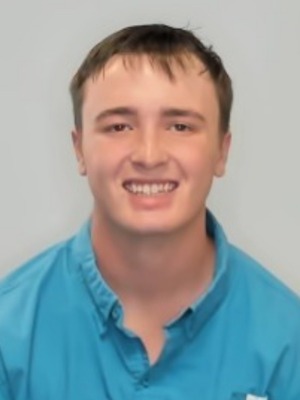Below is a summary of the abstract you submitted. Presenting author(s) is shown in bold.
If any changes need to be made, you can modify the abstract or change the authors.
You can also download a .docx version of this abstract.
If there are any problems, please email Dan at dar78@pitt.edu and he'll take care of them!
This abstract was last modified on March 16, 2021 at 5:08 p.m..

Antibiotic-resistant bacteria are a growing global health concern and phage therapy has the potential to combat these superbugs. Bacteriophages are able to insert their DNA into host bacteria and then replicate inside until cell lysis. Bacteriophage Jewell was collected from a water sample from a sheep barn water trough located west of Stephenville, Texas, and was directly isolated and incubated with the host Microbacterium foliorum NRRL-24224. Following two rounds of serial dilution, the isolated bacteriophage formed 3 mm lytic plaques. Negative-staining transmission electron microscopy at a titer of 5.3109 pfu/mL showed that Jewell had a Siphoviridae morphology with the tail being 165 nm long and the capsid being 62.5 nm in diameter. DNA was extracted using zinc chloride precipitation. Restriction enzyme digest and gel electrophoresis of the extracted DNA using HaeIII, NspI, and SalI showed no cleavage. The phage Jewell was archived at Tarleton State University and at the Pittsburgh Bacteriophage Institute.

